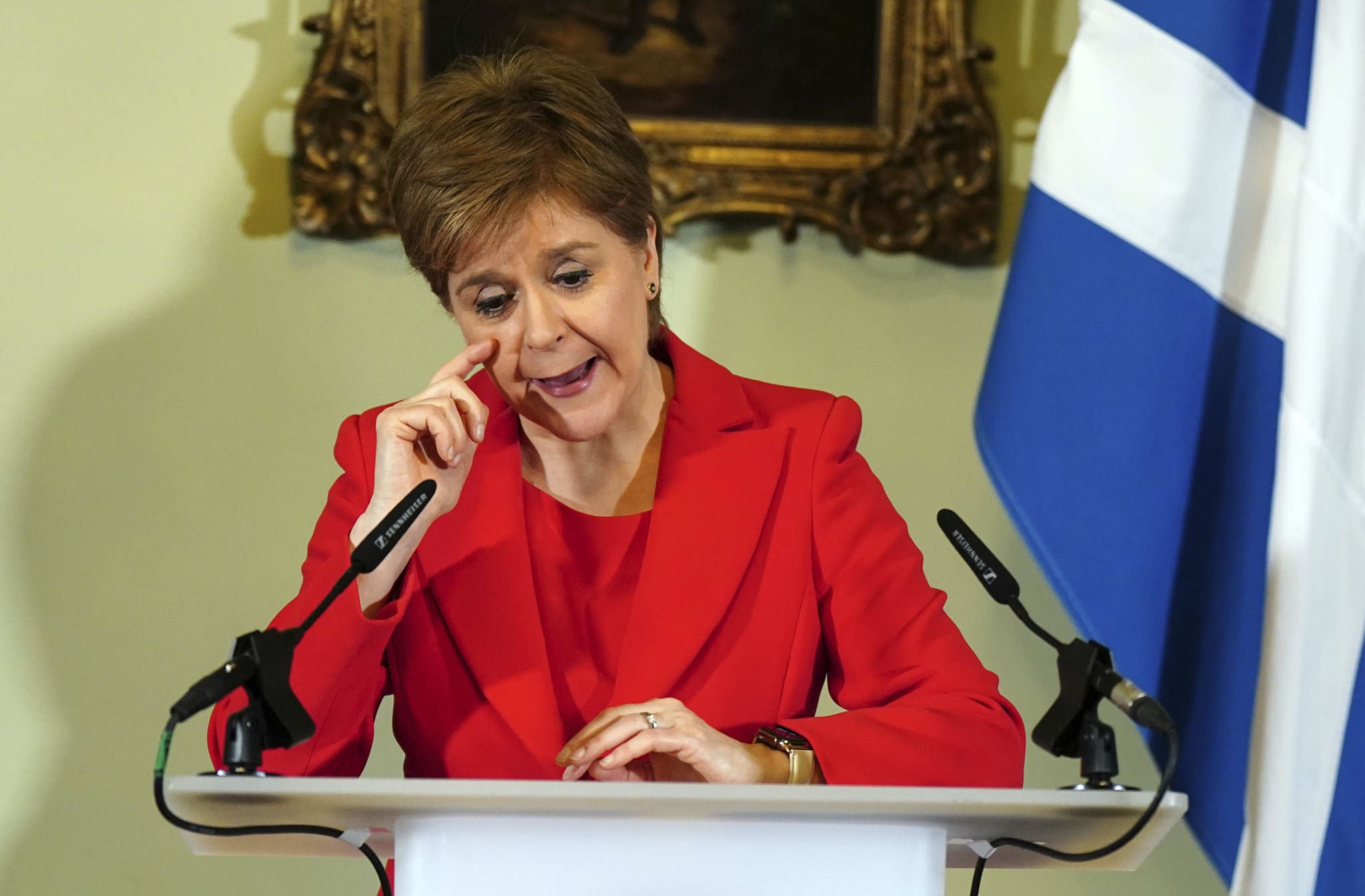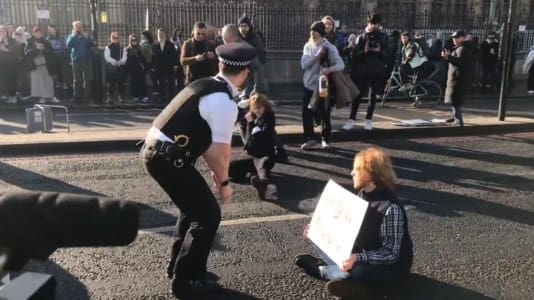Nicola Sturgeon has unexpectedly resigned as Scotland’s first minister and leader of the Scottish National Party (SNP) after more than eight years in the job.
Sturgeon announced the news in a speech held at her official residence of Bute House in Edinburgh at 11 a.m. on Wednesday.
“Today I am announcing my intention to step down as first minister and leader of my party,” she told viewers. “I will remain in office until my successor is elected.”
The pro-independence Scottish politician said she had enjoyed the “best job in the world,” but “instinctively” knew it was time “to make way for someone else.”
“In my head and in my heart I know that time is now, that it is right for me, my party and the country,” she added.
She spoke of the “physical and mental impact” the role has had on her, adding the “weight of responsibility was immense.”
Sturgeon has been a divisive figure at the head of the Scottish government. She has continued to fight for Scottish independence from the rest of the United Kingdom despite calling an independence referendum back in 2014 a “once-in-a-lifetime vote.”
Her efforts have been resisted by the U.K.’s Westminster government which blocked her attempts for a rerun of the vote in which 55.3 percent of Scots voted to remain a member of the United Kingdom.
Despite an initial change in public opinion on the independence issue following the U.K.’s collective decision to leave the European Union, a move the majority of Scots voted against, recent polls on Scottish independence have not been favorable to Sturgeon and her party. Just 44 percent of Scots currently back going it alone, according to recent polling.
With the U.K. Supreme Court ruling in November last year that the Scottish government does not possess the power to legislate for a referendum on Scottish independence without Westminster approval, many believe the movement has now firmly been kicked into the long grass. Sturgeon referred to the decision taken by the U.K.’s highest court as a “democratic outrage.”
She has also headed an SNP government responsible for a number of controversial policies, the most recent being her Gender Recognition Reform (Scotland) Bill, an attempt to reform gender laws to allow people as young as 16 to legally change their gender without the need of a medical certificate.
Recent rows over Scottish penal laws, which have resulted in a pre-op trans woman and double rapist being assigned to a female-only prison, were also at the heart of her latest power struggle with Westminster.
“To the people of Scotland – whether you voted for me or not – please know that being your First Minister has been the privilege of my life. Absolutely nothing I do in the future will ever come close. Thank you from the bottom of my heart,” Sturgeon told viewers.
She acknowledged, however, that many will revel in the news of her resignation. While many in her party rushed to congratulate her on her term in office, the former Scottish leader told viewers: “I’m not expecting violins.”






